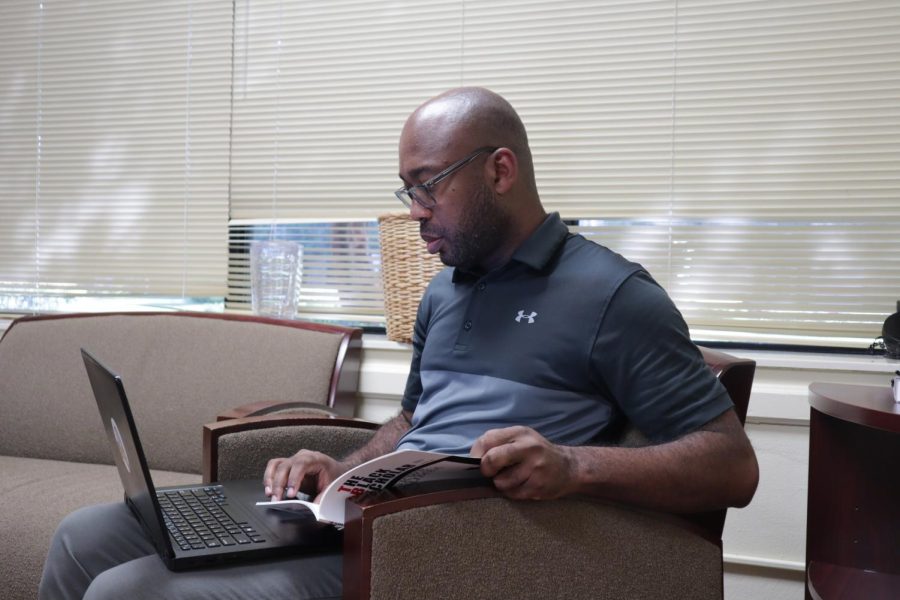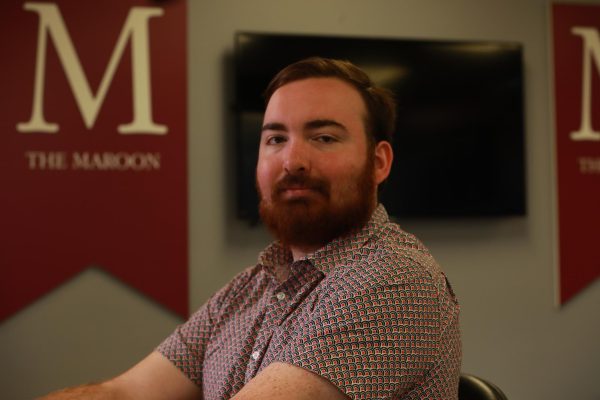OPINION: Please stop saying “differently abled”
Dr. Kedrick Perry works in the Diversity, Equity, and Inclusion Office in Bobet Hall on Sep. 14, 2022. Dr. Perry helps students work through bias reports and other similar issues.
September 24, 2022
I know you probably mean well, but stop saying “differently abled.” We, as considerate human beings, are often sensitive to saying the appropriate or politically correct thing when it comes to people who have conditions that we may not be familiar with.
This unfamiliarity or uncertainty may lead us to say things we think are inclusive or appropriate, but oftentimes are the direct opposite. Take for instance the term “differently abled.” The origins of the phrase are not concrete but many attribute the phrase to the Democratic National Committee in the 1980s. Those seemingly well-meaning folks felt that “differently abled” was a kinder and more positive term than handicapped or disabled. Although many others felt that it was a way for people to feel good about themselves and solidify their allyship.
The term disabled itself means impaired or limited by a physical, mental, cognitive, or developmental condition. This definition in and of itself has no association with being lesser than, or other. “Differently abled,” on the other hand, and other such terms such as “handicapable,” are used by an ableist society to turn a disabled person’s lived experience into something special and inspirational which can be extremely patronizing. Moreover, the terms assume that there is a normal, standard or correct way of being, which there isn’t.
I feel that the motivation to create this term was truly to be less offensive, but at the same time to make those doing the naming feel more comfortable. As time passes, we as a society grow and learn (hopefully). Maya Angelou said it well, “Do the best you can until you know better. Then when you know better, do better.” So, what we know is that this term, instead of being inclusive, has “othered” an entire community; instead of being healing, it has caused harm; and those who thought they were allies, were actually ableists.
So, how do we do better? Here are a few tips:
– Use the term “people with disabilities.” – Stop using “normal” as a way to describe people who don’t have disabilities. – Don’t make those with disabilities feel othered or use language that condescends. – Avoid using language that may describe a person’s disability as a limitation. – Remember that not all disabilities are visible. Many suffer with invisible or hidden conditions. – Offering sympathy or pity to someone who is disabled can be seen as deeply insulting. – Use resources on campus such as the Office for Accessible Education and the Office of Equity and Inclusion to name but two.
And finally, let those who are in the disabled community take the lead on how they want to be identified, how they want to be assisted, how they want to learn, and how they want to live. This is what being a good ally is all about.









PATSY BOYD PARKER • Sep 27, 2022 at 10:06 am
I AGREE WITH THE AUTHOR. MANY DISABILIES ARE NOT IDENTIFIABLE. THEY BECOME IDENTIFIABLE WHEN THE DISABILED PERSON IS MADE TO REALIZE THE DIFFERENCE BY THE WAY HE OR SHE IS TREATED OR ADDRESSED.